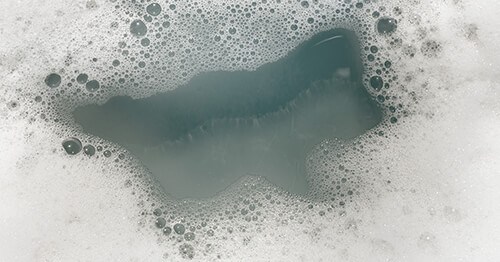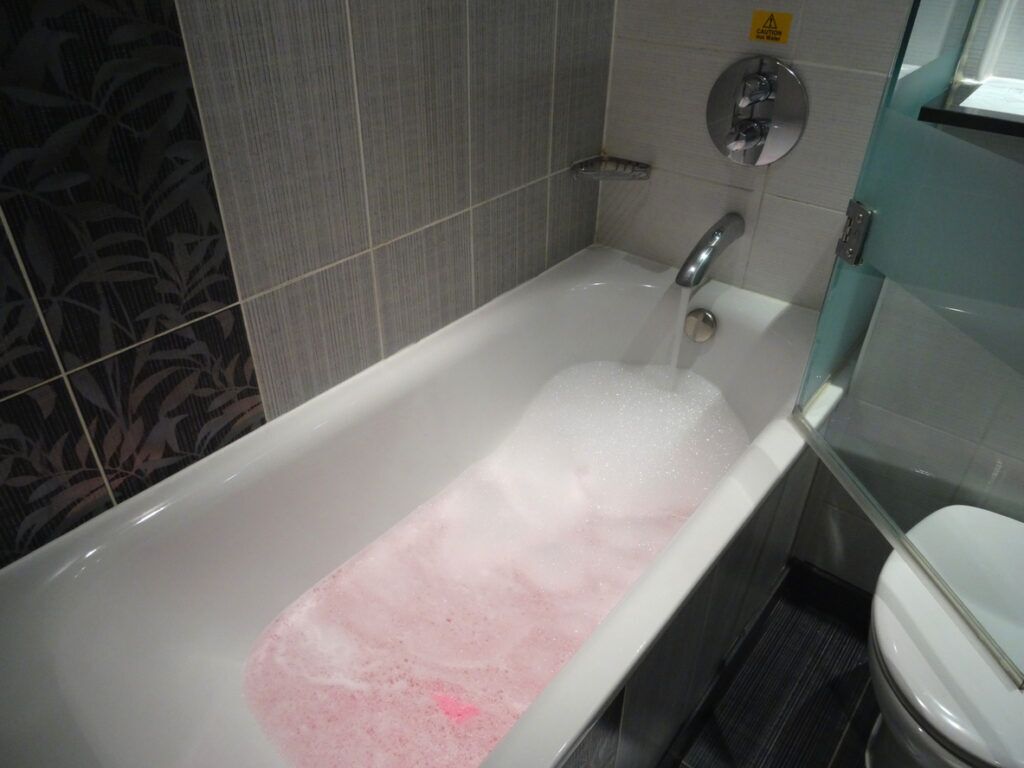The Definitive Answer: Waste Coming Up Through the Bathtub
The Definitive Answer: Waste Coming Up Through the Bathtub
Blog Article
We have discovered this post on Water Coming up Bathtub Drain below on the internet and reckoned it made perfect sense to discuss it with you on this site.

Sewer backup in the bath tub can be a distressing and unsanitary issue for any home owner. Not just is it inconvenient, however it also poses major wellness risks and indicates underlying concerns with the plumbing system. Comprehending why sewer is showing up via the tub is vital for taking proper activity to resolve the issue efficiently.
Intro to the Problem
Usual Reasons for Sewer Backup
Blockages in the Drain Line
Among the most common root causes of sewage backup is a blockage in the drain line. This can occur as a result of the build-up of debris, grease, or foreign objects in the pipes, preventing proper circulation and creating sewage to support right into your tub.
Tree Root Breach
Tree origins seeking moisture and nutrients can penetrate sewage system lines through little fractures or joints. In time, these roots can grow and expand, causing substantial damages to the pipelines and resulting in sewer backup issues.
Recognizing the Trouble
When sewer draws back up right into the bathtub, it's a clear indication of an issue with the drainage system. The wastewater that needs to be streaming far from your home is rather discovering its way back right into your home, which can cause substantial damage and carcinogen.
Potential Reasons
Several variables can contribute to sewage backup in the bath tub. From obstructions in the drain line to issues with the plumbing facilities, recognizing the origin is essential for discovering a solution.
Aging Facilities
Older homes might have outdated plumbing systems that are extra prone to corrosion, cracks, and degeneration. As pipelines age, they end up being extra prone to leakages and obstructions, boosting the likelihood of sewage backup occurrences.
Heavy Rainfall or Flooding
During durations of heavy rainfall or flooding, the sewer system may become overwhelmed with excess water, creating back-ups and overflows. This can result in sewage supporting into bathtubs and other components inside the home.
Indications of Sewer Back-up
Foul Odors
Unpleasant odors rising from drains pipes or fixtures, particularly in the restroom, might suggest sewer backup problems. These odors are commonly strong and consistent, signaling a problem that calls for prompt interest.
Slow Draining Fixtures
Tubs, sinks, and commodes that drain pipes slowly or otherwise whatsoever could be experiencing sewer backup. If numerous components are influenced concurrently, it's likely that the issue originates from an usual point, such as the main sewer line.
Gurgling Noises
Strange gurgling or bubbling noises originating from drains when water is running somewhere else in the house are a measure of air trapped in the plumbing system. This air build-up can result from sewage back-up and should be explored immediately.
Wellness Risks Associated with Sewage Back-up
Contamination of Water Supply
Sewage back-up can infect the water system in your house, presenting a significant health and wellness threat to you and your family. Direct exposure to polluted water can lead to gastrointestinal issues, skin infections, and various other illnesses.
Mold and mildew Growth
Moisture from sewer backup can develop perfect conditions for mold and mildew development in your home. Mold and mildew spores can aggravate breathing issues and cause allergic reactions in delicate people, making punctual cleaning important.
Spread of Condition
Sewer has harmful bacteria, viruses, and parasites that can create a range of conditions, including hepatitis, cholera, and gastroenteritis. Entering contact with sewer or contaminated surfaces places you at risk of infection.
Tidying up After Sewage Backup
Sanitation Procedures
Extensively disinfect and sanitize impacted locations after sewer back-up to get rid of dangerous microorganisms and prevent mold growth. Usage appropriate cleansing products and safety gear to make certain secure and effective cleaning.
Restoration of Affected Areas
Fix any damage to flooring, wall surfaces, or fixtures caused by sewer backup. Depending on the level of the damage, you may require to replace carpeting, drywall, or various other materials to restore your home to its pre-loss condition.
Immediate Actions to Take
Switching Off Supply Of Water
In case of sewage back-up, it's necessary to switch off the water supply to stop more contamination and damage. Situate the primary water shutoff valve in your home and closed it off until the problem can be solved.
Getting In Touch With a Specialist Plumber
Taking care of sewer back-up is not a do it yourself job. Contact a certified plumber with experience in dealing with sewage-related issues to examine the scenario and carry out required repair services or cleanups.
Preventing Contact with Infected Water
Till the sewer back-up is fixed, prevent contact with infected water to avoid the spread of bacteria and microorganisms. Put on protective gear if you should remain in the afflicted area and wash your hands completely afterward.
Preventive Measures
Routine Maintenance of Sewer Lines
Arrange routine assessments and upkeep of your drain lines to identify and address possible concerns before they intensify into significant issues. This can include cleaning out particles, examining for tree root intrusion, and fixing any broken pipes.
Mounting Backwater Shutoffs
Think about mounting bayou valves in your plumbing system to stop sewage from receding into your home throughout periods of heavy rainfall or flooding. These shutoffs automatically close when water starts backing up, shielding your property from contamination.
Appropriate Disposal of House Waste
Prevent purging anything other than toilet tissue and human waste down the toilet to stop obstructions and obstructions in the drain line. Dispose of oil, oil, and other home chemicals appropriately to minimize the risk of plumbing problems.
Why Is Water Backing Up in My Bathtub When I Flush My Toilet?
What to do about a sewer line clog
First, don’t bother with plunging. No amount of plunging will dislodge the clog in a sewer line. The clog is too far away. Plungers are for clogs in the toilet itself, not the sewer line. Plus, the most likely causes of a sewer clog are:
Tree roots Flushed toys or feminine products Grease buildup Those items don’t move easily. And in the case of tree roots, the roots need to be cut out of the pipe and the pipe will need to be repaired.
You’ll need a closet auger. A closet auger is a type of plumber’s snake with a protective cover to keep from scratching the delicate porcelain toilet. If the clog is further down, you may need to remove the toilet or use one of your cleanouts to get to the clog.
We also recommend doing a video inspection of the drain to ensure that the cause of the clog has been completely removed. Otherwise, you could have the same problem again in a few days or weeks.
https://mspplumbingheatingair.com/blog/why-is-water-backing-up-in-my-bathtub-when-i-flush-my-toilet

Do you really like more info about What to Do if Sewage Starts Coming Up Through Your Bathtub? Try to leave feedback further down. We will be glad to see your views about this write up. Hoping that you come back again before long. In case you enjoyed our blog posting kindly make sure you remember to share it. Many thanks for going through it.
Book An Appointment
Report this page